
IQ are a British neo-prog band founded by Mike Holmes and Martin Orford in 1981 following the dissolution of their original band The Lens. Although the band have never enjoyed major commercial success and had several lineup changes, IQ have built up a loyal following over the years and are still active as of 2024, currently with the original recording line-up. In 2021/22, IQ performed a series of concerts in the UK and Europe celebrating their 40th anniversary.
Pallas are a Scottish progressive rock band from Aberdeen. They were one of the bands at the vanguard of what was termed neo-prog during progressive rock's second-wave revival in the early 1980s. Other major UK acts included Marillion, IQ, Twelfth Night, Pendragon and Solstice.
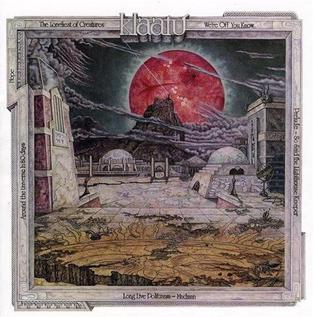
Hope is the second album by the Canadian rock band Klaatu and their first concept album. Released in September 1977, it won a Juno Award for "Best Engineered Album" and a Canadian Music Critics award for "Best Album" that same year. The album follows the loose concept of space travelers visiting a distant planet.
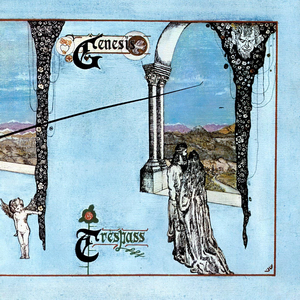
Trespass is the second studio album by the English rock band Genesis. It was released on 23 October 1970 by Charisma Records, and is their last album with original guitarist Anthony Phillips and their only album with drummer John Mayhew.
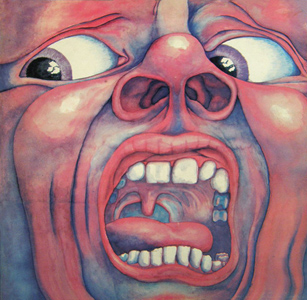
In the Court of the Crimson King is the debut studio album by English progressive rock band King Crimson, released on 10 October 1969, by Island Records. The album is one of the earliest and most influential of the progressive rock genre, with the band combining musical influences that rock music was founded upon with elements of jazz, classical, and symphonic music.

Cornerstone is the ninth studio album by the American rock band Styx, released in 1979. Styx's third straight multi-platinum selling album, Cornerstone was Styx's first album to earn a Grammy nomination, which was for Best Rock Performance by a Duo or Group. Like the four previous Styx albums, the band produced the album themselves. Styx recorded the album at Pumpkin Studios in Oak Lawn, Illinois.

Emerson, Lake & Palmer is the debut studio album by English progressive rock band Emerson, Lake & Palmer. It was released in the United Kingdom by Island Records in November 1970, and in the United States by Cotillion Records in January 1971. After the group formed in the spring of 1970, they entered rehearsals and prepared material for an album which became a mix of original songs and rock arrangements of classical music. The album was recorded at Advision Studios in July 1970, when the band had yet to perform live. Lead vocalist and bassist/guitarist Greg Lake produced it.
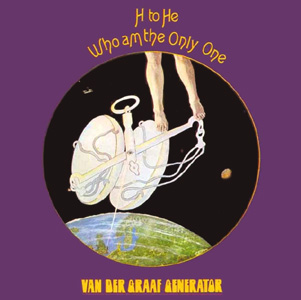
H to He, Who Am the Only One is the third album by the British progressive rock band Van der Graaf Generator. It was released in 1970 on Charisma Records.

Olias of Sunhillow is the debut studio album by English singer-songwriter Jon Anderson, released on 9 July 1976 by Atlantic Records. When the progressive rock band Yes took a break in activity in August 1975 for each member to record a solo album, Anderson, having established himself as their frontman, decided upon a concept album that tells the story of four tribes of an alien race and their journey to a new planet after their home is threatened by a volcanic eruption. Olias, a magician, builds a spacecraft named the Moorglade Mover and is helped by fellow magicians Ranyart and Qoquaq to gather and carry the population to their new home.
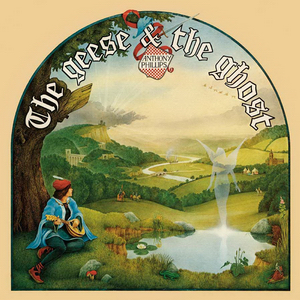
The Geese & the Ghost is the first studio album by English musician and songwriter Anthony Phillips, released in March 1977 on Hit & Run Music in the United Kingdom and Passport Records in the United States. It was originally intended to be an album by Phillips and his former Genesis bandmate Mike Rutherford, but Rutherford's difficulty in devoting time to the project ended the idea. The album reached number 191 on the Billboard 200.
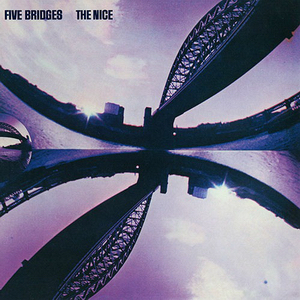
Five Bridges is a live and studio album and fourth overall by English progressive rock band The Nice, released in June 1970 by Charisma Records. Most of the album was recorded live in concert at Fairfield Halls in Croydon, London, in October 1969. The final track, "One of Those People", is a studio recording. The album's centrepiece is "The Five Bridges Suite", a five-part composition about Newcastle upon Tyne that features the group performing with the Sinfonia of London session orchestra conducted by Joseph Eger.

Exposure is the debut solo album by guitarist and composer Robert Fripp. Unique among Fripp solo projects for its focus on the pop song format, it grew out of his previous collaborations with David Bowie, Peter Gabriel, and Daryl Hall, and the latter two singers appear on the album. Released in 1979, it peaked at No. 79 on the Billboard Album Chart. Most of the lyrics were provided by the poet and lyricist Joanna Walton, who also coined the term "Frippertronics" to describe Fripp's tape looping techniques.

The Aerosol Grey Machine is the debut studio album by English progressive rock band Van der Graaf Generator. It was first released in the United States in 1969 by Mercury Records.

The Fall of the House of Usher is an opera by Peter Hammill (music) and Chris Judge Smith (libretto). It is based on the 1839 short story of the same name by Edgar Allan Poe.
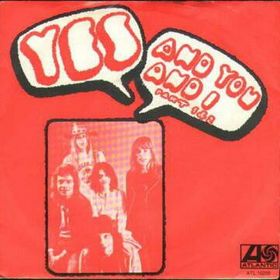
"And You and I" is the second track from the album Close to the Edge by the English progressive rock band Yes. The song is just over ten minutes in length and consists of four movements. The first and second parts of the song were released as a single edit and reached number 42 on the Billboard Hot 100.

, commonly known as The Story of I, is the first solo album by Swiss keyboard player Patrick Moraz, released in June 1976. It is a concept album centering on a building which people enter and ascend to fulfill their dreams, dying when they reach the top. Because the album's title consists of a symbol which does not appear on any standard keyboard, journalists adopted "The Story of I" as an unofficial title for the work to more easily refer to it. The album was recorded during a break from Moraz's band Yes when each member of Yes recorded a solo album. It consists of a single song which, at over 46 minutes, is the longest song recorded by Yes or any of its members to date.

The Wake is the second studio album by British neo-prog band IQ, released on 3 June 1985 by Sahara Records. Recorded at Falconer Studios in London from March to April 1985, it was produced by Mike Holmes and Tim Esau.
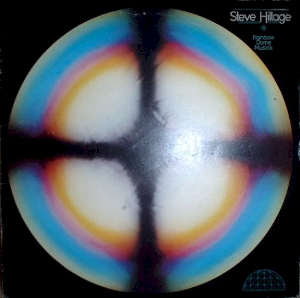
Rainbow Dome Musick is the fifth studio album by Steve Hillage, released by Virgin Records in April 1979. It is a departure from his previous albums, consisting of two long ambient songs recorded in collaboration with his long-time partner Miquette Giraudy.

Reality is the debut studio album by British rock band Second Hand, released in 1968. The album is sometimes considered to be one of the first progressive rock recordings, and sometimes as a psychedelic rock/garage rock album which includes only occasional elements of progressive. Most of the album's material was written and recorded in early 1967.

Seven Stories into Eight is a demo album by the Neo-prog band IQ. It was released in 1982 on cassette. In 1998, a new version of this work was released as a studio album.



















